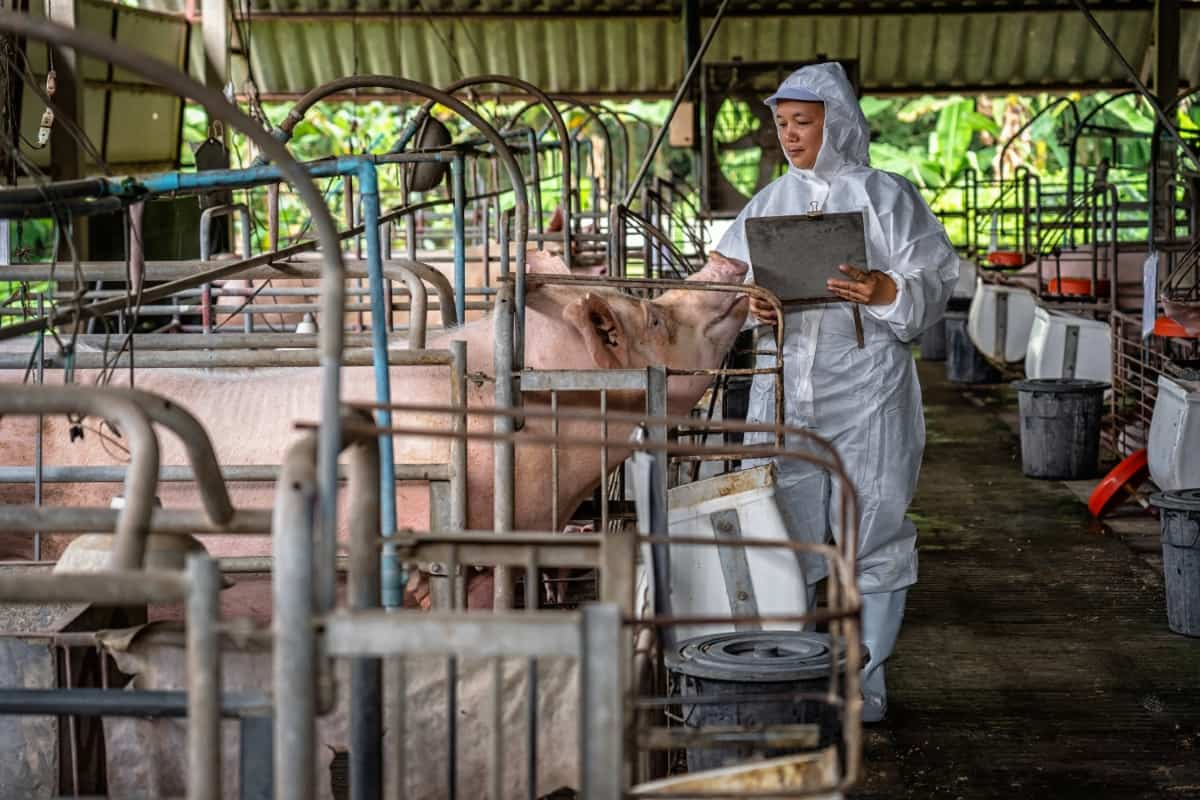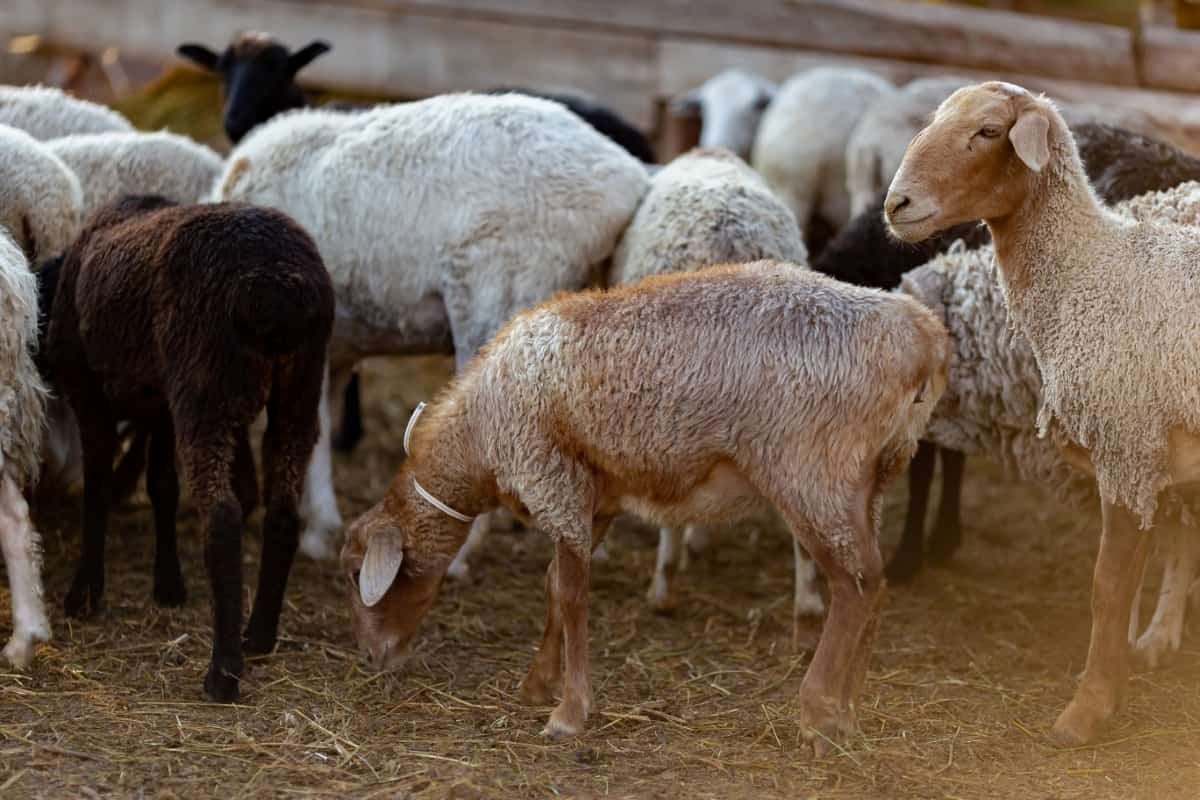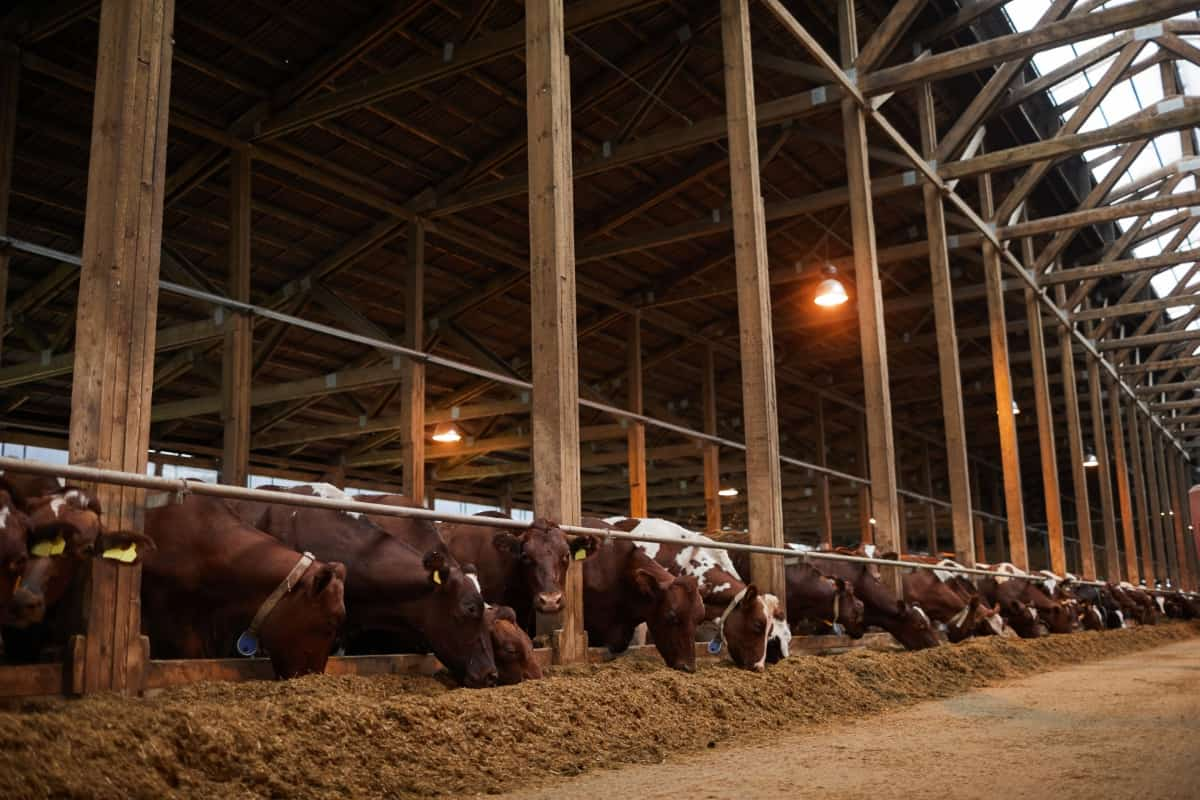Creating a comprehensive business plan for an organic farming venture specializing in livestock requires a deep understanding of various aspects, from the principles of organic farming to market strategies. By incorporating organic farming business ideas and strategies to maximize organic farming business profit, this guide aims to offer a solid foundation for those looking to venture into this sustainable and ethically driven industry.

Organic Farming Business Plan for Livestock
Understand the Principles of Organic Livestock Farming
This involves learning about the practices that distinguish organic farming from conventional methods, such as the prohibition of synthetic chemicals and the emphasis on animal welfare. A deep dive into these principles will help you align your business operations with organic standards, ensuring that your livestock is raised in a natural, healthy environment.
Emphasizing these principles in your business plan is crucial to demonstrate your commitment to sustainable farming practices and to appeal to the growing market of consumers seeking organic products.
Identify Market Opportunities for Organic Livestock Products
The success of an organic livestock business heavily depends on identifying and tapping into the right market opportunities. Study the latest market trends and consumer choices in the organic industry to gain insight into how your products can find their place. Consider factors such as the rising demand for organic meat and dairy, consumer awareness of animal welfare, and the willingness to pay a premium for organic products.
Your business plan should detail the specific market segments you aim to target, such as local farmers’ markets, organic food stores, or direct-to-consumer sales channels, and how you plan to position your products to meet the needs and preferences of these segments.
Develop a Sustainable Livestock Management Plan
A sustainable livestock management plan is at the heart of your organic farming business. This plan should detail how you will manage your livestock in a way that is both environmentally sustainable and economically viable. Outline your strategies for grazing management, breeding, and maintaining genetic diversity. Consider the long-term impacts of your practices on the land, the local ecosystem, and the health of your animals.
In case you missed it: Livestock and Dairy Farming Subsidies: Financial Assistance by the Government of India

Implement Organic Feed and Nutrition Strategies
This section of your business plan should outline your approach to sourcing or producing organic feed, ensuring that it meets the nutritional needs of your animals without the use of synthetic additives. Discuss how you will maintain a balanced diet for your livestock, incorporating a variety of organic forages, grains, and supplements as necessary. This not only supports the health and well-being of your animals but also ensures the quality and integrity of your organic products.
Ensure Animal Welfare and Ethical Practices
Ensuring animal welfare and adhering to ethical practices are cornerstones of organic livestock farming. Your business plan should clearly articulate the standards and practices you will implement to ensure the well-being of your animals. This includes providing adequate space, shelter, and comfort, as well as humane handling and transport. Emphasize your commitment to treating your animals with care and respect, and outline the steps you will take to monitor and maintain their health and welfare throughout their lifecycle.
Establish a Holistic Health Management System
Establishing a holistic health management system is crucial for the success of an organic livestock farm. This involves implementing preventive health practices, such as regular health checks, vaccinations, and parasite control, using natural and approved methods. Your plan should detail how you will monitor the health of your animals and respond to any health issues in a way that aligns with organic principles. This not only ensures the well-being of your livestock but also maintains the integrity and quality of your organic products.
Create a Marketing and Sales Strategy for Organic Livestock Products
Finally, your business plan should include a comprehensive marketing and sales strategy for your organic livestock products. This involves identifying your target customers, creating a brand identity, and developing marketing materials that communicate the benefits of your organic products. Outline your sales channels, such as online platforms, local markets, or wholesale distribution, and discuss how you will price your products to be competitive yet reflective of their organic premium.
In case you missed it: Everything You Need to Know About Livestock Auctions

Financial Planning and Budgeting for an Organic Livestock Farm
Financial planning and budgeting are crucial for the success of any organic livestock farm. This section of your business plan should provide a detailed financial model, including startup costs, operational expenses, and projected revenues. Consider the specific costs associated with organic farming, such as organic feed, certification fees, and potentially higher labor costs due to more intensive management practices.
Develop a budget that accounts for these unique expenses while also identifying potential funding sources, such as loans, grants, or investor capital. A robust financial plan demonstrates the viability of your business and is essential for attracting investors or securing financing.
Environmental Sustainability in Organic Livestock Farming
Environmental sustainability is a key component of organic livestock farming. Your business plan should detail the practices you will employ to minimize your environmental impact and contribute positively to the ecosystem. This includes strategies for managing manure, conserving water, reducing energy consumption, and protecting local wildlife and biodiversity.
Highlight how your farm will contribute to soil health, water quality, and carbon sequestration. By emphasizing environmental sustainability, you not only align with the principles of organic farming but also appeal to environmentally conscious consumers and stakeholders.
Regulatory Compliance and Certification for Organic Livestock Operations
Navigating regulatory compliance and obtaining certification are critical steps in establishing an organic livestock operation. Your business plan should outline the process for becoming certified organic, including adherence to national and international standards for organic farming.
In case you missed it: How to Grow Pasture for Livestock: A Step-by-Step Guide for Beginners

Discuss the specific regulations that apply to organic livestock, such as feed requirements, animal welfare standards, and the use of veterinary treatments. Include a plan for record-keeping and regular inspections, which are necessary for maintaining organic certification. Understanding and adhering to these regulations ensures that your farm operates legally and meets the expectations of organic consumers.
Conclusion
In crafting a business plan for an organic livestock farm, it is essential to integrate diverse aspects such as financial planning, environmental sustainability, and regulatory compliance into your strategy. A well-rounded approach that encompasses the principles of organic farming, market opportunities, sustainable management, animal welfare, health management, marketing strategies, financial viability, environmental responsibility, and adherence to organic regulations is fundamental to success.
- Ultimate Guide to Ossabaw Island Hog: Breeding, Raising, Diet, and Care
- Ultimate Guide to Juliana Pig: Raising Facts, Size, Diet, Care, and Lifespan
- Raising Lleyn Sheep: Disadvantages, Price, Uses, Characteristics, and Care
- Ultimate Guide to Meishan Pig: Breed Facts, Breeding, Raising, and Care
- Ultimate Guide to Teacup Pigs: Raising, Diet, Lifespan, Cost, and Care
- Guide to Raising Poll Dorset Sheep: Facts, Profile, Characteristics, Uses, and Care
- Ultimate Guide to Bighorn Sheep: Characteristics, Diet, Lifespan, Breeding, and Lifecycle
- Ultimate Guide to Raising Katahdin Sheep: Farming Facts, Breed Profile, Uses, and Care
- Ultimate Guide to Raising Oreo Cows: Belted Galloways Farming Facts, Profile, Uses, and Care